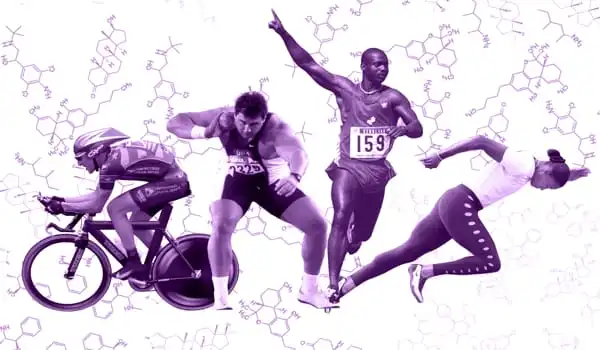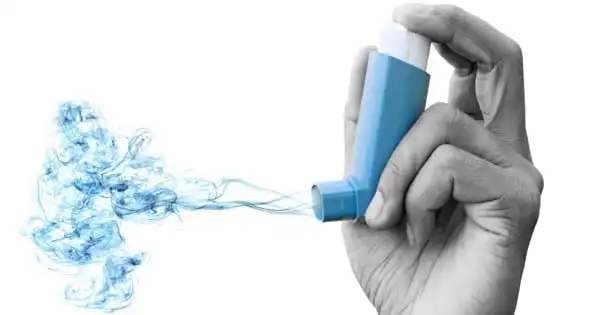In terms of performance, the asthma drugs of interest are the bronchodilators (such as salbutamol, albuterol, and formoterol), which open restricted airways and treat asthma symptoms such as shortness of breath and wheezing. Some athletes, however, obtain bronchodilators for off-label use, believing the drugs will relax the muscle linings of their healthy lungs and provide them an advantage over their competition.
A type of asthma medication known as ß2-agonists can improve sprint and strength performance in athletes who do not have a respiratory illness, according to a study and pooled data analysis published online in the British Journal of Sports Medicine.
According to the data, the performance-enhancing properties of ß2-agonists appear to be stronger when given orally rather than inhaled. However, the researchers say it’s unclear if ß2-agonists that have been formally permitted for use by the World Anti-Doping Agency (WADA) have the same effects as those that have been prohibited.
ß2-agonists open the airways, allowing oxygen to enter the lungs. They are advised to be used prior to exercise and for symptom alleviation in persons suffering from asthma, which is frequent among Olympic competitors. However, the use of inhaled ß2-agonists by professional athletes is heavily debated, as individuals with asthma frequently outperform their colleagues who do not have respiratory ailment.
A type of asthma medication known as ß2-agonists can improve sprint and strength performance in athletes who do not have the respiratory illness, according to a study and pooled data analysis.
British Journal of Sports Medicine
The putative performance-enhancing properties of ß2-agonists have been the subject of several (often contradicting) research and regulations, as well as ongoing debate in the aftermath of recent anti-doping investigations involving world-class athletes. In light of the current debate, the researchers set out to evaluate the impact of these medicines on anaerobic exercise performance. Sprinting and weight-lifting are examples of exercises that involve a sudden burst of energy at maximum exertion for a short period of time.
They scoured research databases for acceptable clinical trials published up to December 2019 and discovered 34 relevant studies, encompassing 44 separate randomised controlled trials and including 472 participants in total. When the data from the 34 studies was pooled, the researchers discovered that ß2-agonists as a class increased anaerobic exercise performance in persons without asthma by 5% when compared to a dummy therapy (placebo).
According to the researchers, this is “an improvement that would impact the outcome of most sporting competitions.” The improvements were 3 percent for sprint performance and 6 percent for strength performance. However, the effect was related to dose size and administration mode (tablet/syrup or inhaled), with the oral route being more beneficial.

WADA amended its list of prohibited compounds in January of this year, which included all ß2-agonists except certain amounts of inhaled salbutamol, formoterol, and salmeterol. When the study was adjusted to compare illegal and approved ß2-agonists, the approved medicines did not improve anaerobic performance, whereas banned ß2-agonists did. However, there was still a propensity for approved ß2-agonists to improve performance, and the impact was stronger after many weeks of treatment.
“This means that it remains unknown if permitted doses increase anaerobic performance,” the researchers write. They also out that the design and methods of the included research varied significantly, and that participants ranged from inexperienced to elite athletes. Lab testing were also used to assess the measured outcomes rather than live competition.
Despite their caution in interpreting their findings, the researchers stress that the findings of their assessment “should be of interest to WADA and anybody who is interested in fair opportunities in competitive sports. The use of ß2-agonists in athletes should be controlled and limited to individuals with an asthma diagnosis established with objective tests,” they conclude.
As inhalers are a drug delivery method that can be used to administer a range of medications, it is critical for asthmatics who use inhalers to check the status of their medication on the WADA Prohibited List. Others inhaler drugs are restricted, while others are not, and some are deemed threshold medications on the WADA Prohibited list, which means they are allowed in specific levels but prohibited in excess of that quantity. If an athlete has a true medical need to take a forbidden medicine, they may apply a Therapeutic Use Exemption (TUE), which, if granted, permits them to take the medication in a therapeutic dose.
“A substance or method will be considered for the WADA Prohibited list if it meets at least two of the following three criteria: it has the potential to enhance or improve sport performance, it represents an actual or potential health risk to the athlete, and/or it violates the spirit of sport,” says Annie Skinner of the US Anti-Doping Agency (USADA). The autonomous organization is in charge of handling the anti-doping program for all U.S. athletes competing in Olympic, Paralympic, Pan American, and ParaPan American sports, including USA Triathlon, including testing, results management, education, and scientific efforts.





